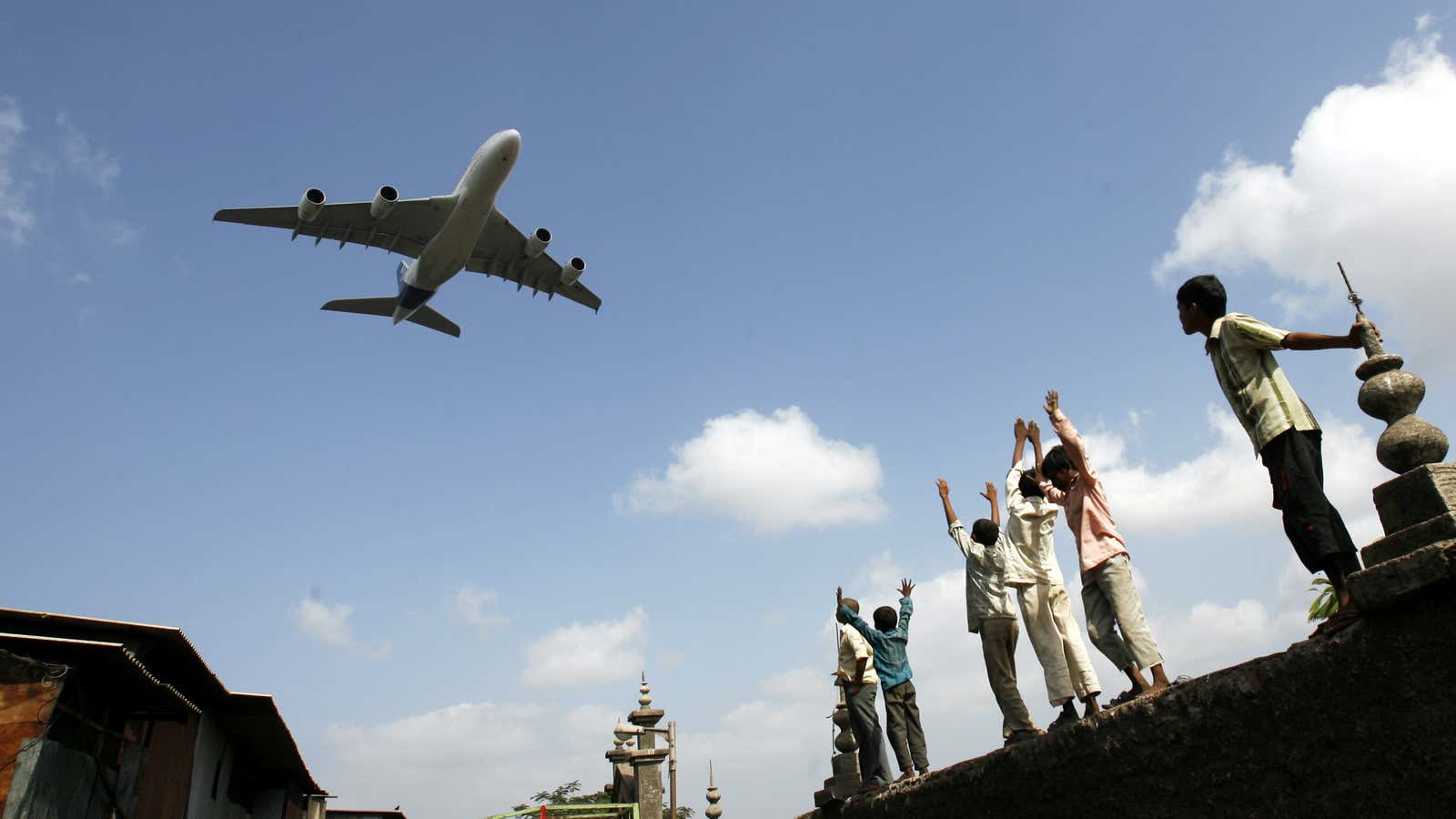People flying out of India might end up avoiding airlines of Middle Eastern countries for long haul flights.
On March 21, the US administration announced that all digital devices except smartphones are banned on-board for certain flights originating in the Middle East. Passengers flying from Cairo, Kuwait City, Dubai, Doha, Abu Dhabi, Casablanca, Jeddah, Amman, Riyadh, and Istanbul must check these items in.
It directly impacts 56 US-bound daily flights from the Middle East. The airlines affected are Royal Jordanian, Egypt Air, Turkish Airlines, Saudia, Kuwait Airways, Emirates, Etihad Airways, and Royal Air Maroc. (The UK followed suit with an electronics ban of its own the same day.)
However, the inconvenience extends well beyond the Gulf borders. Air travel for passengers around the world, including millions from Indian, is going to become a hassle, too.
In fiscal 2016, around 50 million international journeys commenced or ended in India, according to data from the India arm of consulting and research firm Center for Aviation (CAPA). “Out of these 50 million, just under 20%, or around 10 million, travelled on Emirates, Etihad, and Qatar,” CAPA India said in an e-mail. These numbers include Indians and foreign nationals traveling to and from India. Roughly 1.3 million passengers travelled from India to the US in that period.
For many of them, using devices on-board may be a cure for boredom: playing Candy Crush, watching movies on laptops or reading on Kindle. However, the ever-busy business traveler will end up in a real fix.
Disgruntled business travelers
Being on a flight is no longer an excuse to disconnect from clients and colleagues.
Especially for people like consultants or lawyers or architects, who bill clients by the hour, the connectivity during a flight has been a boon for productivity. Long international flights went from being economic black holes to a money-making machines. “…Now, for a lawyer who charges $1,000 an hour, paying $5,000 for a one-way business class seat from Dubai to the US makes sense, even if she can comfortably do only seven hours of work. The same calculus holds for the accountant in coach,” Slate’s Daniel Gross explains.
And even if there’s no boss or client to answer to, frequent travelers who have to balance between work and catching forty winks up in the air. For people whose work spans countries and timezones, their laptops can be their professional lifelines.
“It’s a 14-hour flight to San Francisco or Los Angeles and I spend most of that time working on my laptop,” Bhavin Turakhia, chief executive of internet domain registrar Directi, told The Times of India. To make sure his business operations, spanning the US, Dubai and India, run smoothly, Turakhia will now have to seek out other airlines such as British Airways, Lufthansa or Singapore Airlines.
Airlines outside the Middle East might emerge as the winners by default.
Lucking out
Unlike their US and European counterparts, Middle Eastern airlines have always been applauded for their attention to detail, state-of-the art services and top-notch treatment of customers. In recent years, the Gulf carriers started ramping up the size of their fleets to keep up with booming business. However, the latest move by the Trump administration will likely get travelers from India to reconsider their travel routes.
Air India, the Indian carrier that operates non-stop flights from Mumbai, Delhi, Hyderabad, and other Indian cities to major US tech and finance hubs such as New York, Chicago, and San Francisco, expects to see a surge in passengers.
“For many passengers laptops and iPads serve as their mini office and generally have a lot of official data stored in them,” Vinod Hejmadi, director of finance at Air India told Bloomberg. Passenger will not want to risk their electronic equipment being susceptible to potential theft or damage in their checked-in bags, he added.
